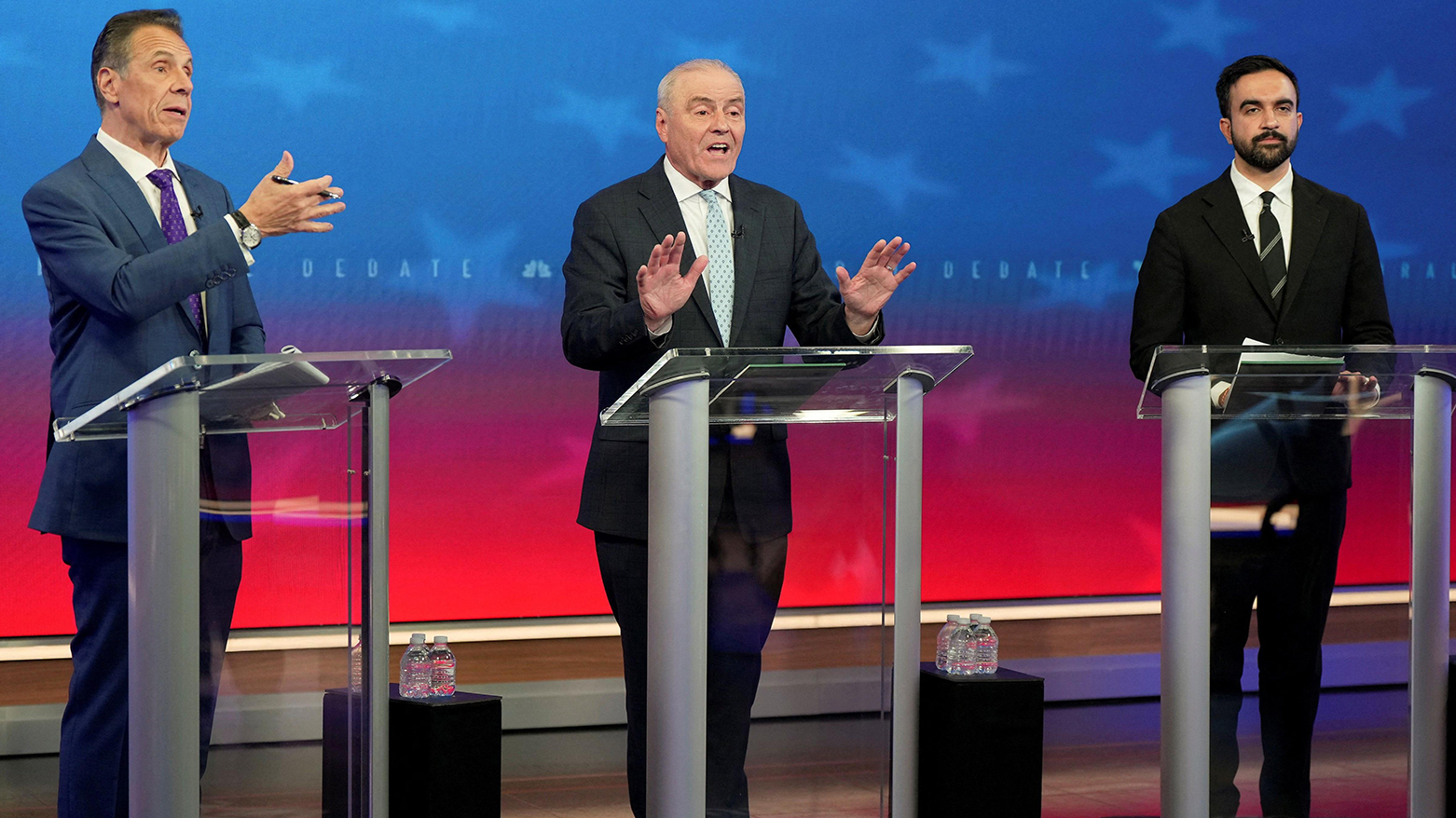Zohran Mamdani Could Make History — and Reshape U.S. Politics and Israel Ties
If New York City elects its first Muslim mayor, the victory would reverberate through U.S. domestic politics, fuel debates over free speech and antisemitism, and likely complicate Washington’s relationship with Israel.

ERBIL (Kurdistan24) — With election day in New York looming, Zohran Mamdani — a 34-year-old Muslim progressive and self-described democratic socialist — leads a contest that has become a national flashpoint. President Donald Trump’s public endorsement of Andrew Cuomo and his threat to withhold federal funds if Mamdani wins have amplified the stakes, transforming a municipal race into a referendum on America’s political direction and on the limits of federal influence over a major city.
A historic win — and why it matters nationally
A Mamdani victory would be historic: the first Muslim mayor of New York City. Symbolically, it would signal continued momentum for a younger, more progressive wing of the Democratic coalition that has already reshaped local politics in major U.S. cities.
Practically, it would force both parties to recalibrate. For Democrats, Mamdani’s win would validate a platform centered on housing affordability, taxing the wealthy, and social services — energizing progressives while risking a deeper split with moderate suburban voters and business constituencies.
For Republicans and MAGA-aligned figures, the race has become fodder to paint Democrats as “radical” and to centralize culture-war themes ahead of future national campaigns.
Domestically, Trump’s threat to cut federal funding — a move he framed in ideological terms by labeling Mamdani a “communist” — raises constitutional and political questions about the federal role in local governance and the use of federal leverage as a partisan tool.
While such a cut would be politically and legally fraught, the rhetoric itself could chill federal-city relations and set a precedent for weaponizing federal support against municipalities led by political opponents.
The Jewish community, identity politics, and public safety
Mamdani’s outspoken criticism of Israel’s policies in Gaza — he has described Israel’s campaign in terms used by some as “genocide” and has said the city should honor an ICC warrant for Israeli Prime Minister Benjamin Netanyahu — has alarmed many Jewish voters, prompting denunciations from some rabbis and nervousness across New York’s large and diverse Jewish population.
At the same time, younger progressive Jews and parts of the Jewish left have embraced his focus on social equity and his outreach efforts. That cleavage makes Mamdani’s potential victory consequential for how American Jewish political influence is exercised and for debates about the line between criticism of Israel and antisemitism.
If elected, Mamdani’s pledge to use municipal authority to pressure or police visits by Israeli leaders (for example, promising to order an ICC-based arrest if Netanyahu visits) would likely be largely symbolic and face immediate federal legal and diplomatic obstacles.
Nevertheless, such threats would dramatically escalate tensions between city officials, the State Department, and allied governments — and they would reshape the political conversation around municipal diplomacy and the limits of local power in foreign affairs.
What a Mamdani mayor would mean for U.S.–Israel relations and the wider world
At the diplomatic level, a Mamdani mayor would not change U.S. foreign policy by itself — foreign policy is determined at the federal level — but the optics and the domestic controversy would matter.
A sustained campaign by a prominent U.S. mayor to criminalize or delegitimize Israeli officials would deepen strains between pro-Israel constituencies in the United States and progressive advocates for Palestinian rights.
It could prompt a public relations challenge for the U.S. government if Washington is forced to repudiate municipal actions or if Israeli leaders decline to meet U.S. municipal authorities while maintaining ties to federal counterparts.
Internationally, Mamdani’s election could feed narratives used by foreign governments to criticize U.S. coherence: allies alarmed about the mayor’s statements might press Washington for reassurances, while hostile actors could exploit internal divisions to weaken U.S. influence.
Conversely, his victory would also spotlight America’s pluralism — a Muslim mayor of New York is itself a diplomatic symbol of U.S. diversity that some states will praise while others will use to rile domestic audiences.
Political Polarization, Security, and the Limits of Municipal Power
Legal and security experts note that any attempt by a city to detain a foreign head of government would collide with federal prerogatives over diplomacy, sovereign immunity issues, and law enforcement jurisdiction.
In practice, a Mamdani administration could increase local monitoring of hate crimes, expand community policing reforms, and use the bully pulpit to influence national debate — but it would face immediate constraints on executing actions that would directly arrest visiting foreign leaders.
Still, the rhetoric of arrest and ICC enforcement has already heightened anxieties and could alter the pattern of visiting dignitaries and public events in New York.
The race exemplifies how local elections have become nationalized: both parties treat mayoral contests as bellwethers and recruiting grounds for messaging. A Mamdani win could embolden progressives elsewhere and accelerate intraparty fights over strategy and electability.
A Zohran Mamdani victory would be historic and symbolically powerful: a marker of generational and ideological change in American urban politics. But it would also be a crucible — testing constitutional boundaries, reshaping communal alliances in the United States, and projecting domestic fault lines onto the global stage, especially in U.S.–Israel relations.
Whether his mayoralty would lead to tangible shifts in foreign policy is limited by federal authority, yet the political and diplomatic reverberations would be immediate and far-reaching.
For New Yorkers and global observers alike, the city’s choice will say as much about America’s internal politics as it will about the nation’s role abroad.
